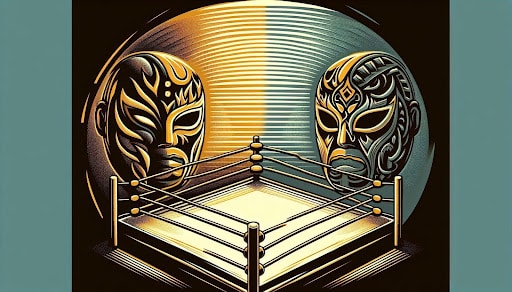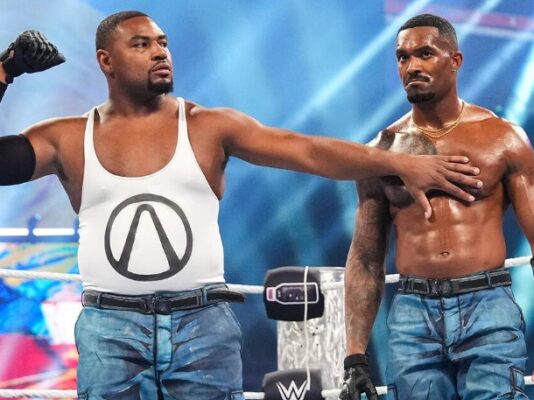
Wrestling has always been a spectacle, a grand stage where larger-than-life characters clash in battles of strength and wit. From the golden age of wrestling, where heroes were clear-cut and villains were unmistakable, to today’s complex personas, the evolution of wrestling characters mirrors broader societal changes. This evolution is not just confined to the wrestling ring; it has parallels in other forms of entertainment, including online gaming.
Take Zimpler Casino, for example. This platform has diversified its offerings to cater to a wide range of preferences, much like how wrestling has evolved to include a variety of character types. As entertainment continues to evolve, the lines between different forms of media blur, creating a richer, more immersive experience for audiences. But how did we get here? What drove these changes in wrestling personas, and how do they reflect broader trends in entertainment?
Classic heroes: The golden age of wrestling
The early days of wrestling were defined by clear-cut heroes and villains. These classic heroes were often portrayed as paragons of virtue, embodying ideals of strength, honor, and fair play. Icons like Hulk Hogan and “Macho Man” Randy Savage captivated audiences with their larger-than-life personas and heroic deeds. These characters were straightforward; they were the good guys, and their battles against the villains were epic struggles of good versus evil.
Hulk Hogan, for instance, became a household name in the 1980s, not just for his wrestling prowess but for his persona as a real-life superhero. His catchphrases like “Say your prayers and eat your vitamins” resonated with fans, making him a role model for many. Similarly, “Macho Man” Randy Savage, with his flamboyant outfits and intense charisma, became an icon of the golden age of wrestling. These heroes were larger-than-life figures who captivated audiences with their charisma and physical prowess.
However, as society evolved, so did the tastes of the audience. The clear-cut heroes of the golden age began to give way to more complex characters. The shift from classic heroes to anti-heroes marked a significant change in wrestling, reflecting broader cultural shifts and changing audience preferences.
The rise of the anti-hero
As the 1990s rolled in, the world of wrestling saw the rise of the anti-hero. These characters were not the paragons of virtue that defined the golden age; they were complex, flawed, and often walked the line between good and evil. This shift was driven by cultural changes and a growing appetite for more nuanced storytelling.
Stone Cold Steve Austin is perhaps the most iconic anti-hero in wrestling history. With his rebellious attitude and disdain for authority, Austin became a symbol of the anti-establishment sentiment that was prevalent in the 1990s. His character blurred the lines between hero and villain, making him a relatable figure for many fans. The Rock, another iconic figure, also embodied this shift. While he started as a classic hero, his character evolved into a more complex persona, combining charisma with a ruthless edge.
The rise of the anti-hero in wrestling was a reflection of broader societal changes. Audiences were no longer satisfied with clear-cut heroes; they wanted characters who were more relatable, more human. This shift also paralleled changes in other forms of entertainment, including movies, TV shows, and video games, where anti-heroes became increasingly popular.
Parallels in online gaming: From simple games to complex platforms
The evolution of wrestling personas has interesting parallels in the world of online gaming. Just as wrestling characters have become more complex, so too have online gaming platforms. In the early days of online gaming, options were limited and straightforward.
The parallels between wrestling and online gaming highlight a broader trend in entertainment: the move towards more immersive and personalized experiences. Just as wrestling fans have come to appreciate the complexity of anti-heroes, gamers now seek platforms that offer a variety of options and a more engaging experience.
Blurring the lines
As we look to the future, the lines between different forms of entertainment continue to blur. Wrestling and online gaming are just two examples of this trend. The evolution of wrestling personas and the diversification of online gaming platforms like Zimpler Casino are part of a broader shift towards more immersive and interconnected experiences.
In the world of wrestling, we can expect to see even more complex characters and storylines. The rise of digital media and social platforms allows wrestlers to engage with fans in new ways, creating a more interactive experience. Similarly, online gaming platforms will continue to evolve, offering even more personalized and immersive experiences.
The future of entertainment is one where the boundaries between different forms of media are increasingly fluid. Wrestling, online gaming, and other forms of entertainment will continue to influence each other, creating a richer and more dynamic landscape for audiences. As these trends continue to unfold, one thing is clear: the evolution of entertainment is far from over.












